The ALBA diversity podcast, an initiative by the ALBA Global Diversity Working Group, highlights diverse profiles of neuroscientists, to showcase the grit and determination it takes to overcome hurdles as part of underrepresented groups in brain research. ALBA's podcaster, Dr. Shruti Muralidhar, talks to researchers across positions, career paths and backgrounds, to better understand their personal journeys, and what keeps them going as individuals and as neuroscientists in today’s world.
This first season is focusing on migration and mobility.
Audio transcriptions* are available under the description of each episode.
-
Episode 1: Ibukun Akinrinade - Pursuing your dreams: a career in neuroscience
"The beauty of science is having people from various backgrounds and fields come together to create something beautiful: scientific research, ideas and innovation."
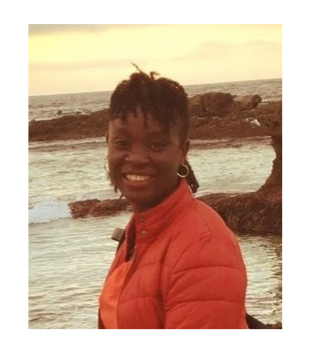
Dr. Ibukun Akinrinade just concluded her PhD with Prof. Rui Oliviera at the Instituto Gulbenkian de Ciencia, trying to understand the role of oxytocin in social behaviour in Zebrafish. She talks about being an African woman neuroscientist and a mother. Ibukun credits her mother-in-law as her personal mentor, who constantly champions her work and efforts to become a scientist. She also tells us about TReND in Africa, a charity organization that gave her the exposure and skills she needed to become the neuroscientist she is today.
Originally from Nigeria, Ibukun has a background in Anatomy from the University of Ilorin. Before starting her PhD, she did a one-year training at the University of Bordeaux in France where she studied the role of stress systems in addiction focusing on corticotropin receptors, opiate reward and social behaviour in mice.
Audio-transcription of the episode
More information about Ibukun:
- Molecular biology initiative Ibukun helped organize under TReND in Africa
- ORCID ID
-
Episode 2: José Zepeda - Academia needs a culture change
"Diversity is necessary, it is just not communicated properly."
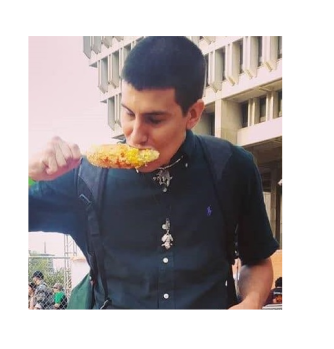
José Zepeda is a poet-scientist hybrid and originates from San Luis Río Colorado, Sonora in México. He talks about his experiences as a first generation immigrant making his way in academia. As a DREAMer, he recounts incidents of his life when he first recognized racism and racist attitudes. During the conversation, he shares poignant insights on how academic institutions need to change their power structures to better reflect the diversity of today’s society.
During the day, he is interested in how neural circuits within the brain can rewire themselves within the context of experience, both during regular development and pathologically. Whenever he gets a break from the lab, José is intent on crafting prose and poetry centered around the contemporary Xicano experience. José currently resides in Nashville, TN where he is pursuing a PhD in neuropharmacology at the Vanderbilt University School of Medicine.
Audio-transcription of the episode
More information about José - www.jczepeda.com
More information about racism in higher education:- The proportion of Black faculty in higher educations (2018) - https://nces.ed.gov/fastfacts/display.asp?id=61
- White Privilege in the workplace - The Bias of ‘Professionalism’ Standards
-
Episode 3: Basma Radwan - Empowering women in science
“As young girls, we are pushed to have a career; but at a certain age, the message changes.”
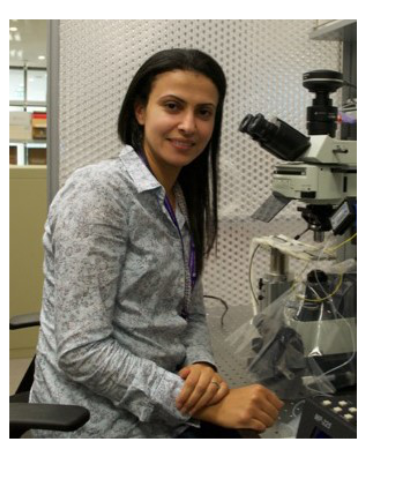
Basma Radwan is a postdoctoral research associate in the Biology department at New York University, Abu Dhabi. She talks to us about her experience as a woman scientist and single mother. She credits her time in NYU, New York as formative for her personal and scientific growth. As an Egyptian woman, she shines a light on the kind of cultural messaging that young Egyptian girls receive while growing up.
Basma Radwan received her B.S. degree in neural science from New York University, New York, the M.S. in biomedical engineering from Boston University, and Ph.D. in Neural science from New York University, New York, in 2015. Her current research revolves around investigating the interplay between sleep and depression and how sleep abnormalities could lead to stress-prone individuals. She was the recipient of the L’Oreal-UNESCO-For Women in Science (Middle East) in 2018 for her research in the field of neuroscience.
Audio-transcription of the episode
More information:
- http://www.chaudhurylab.org/
team - L’Oreal-UNESCO-For Women in Science (Middle East) fellowship 2018
- Mona Lisa smile – a fictional account of women breaking professional and cultural barriers in 1950s America
- http://www.chaudhurylab.org/
-
Episode 4: Prof Huda Yahya Zoghbi – Winner of the Brain Prize 2020
“Awards are recognition of your science and mentorship, but the other side is also to inspire young people.”
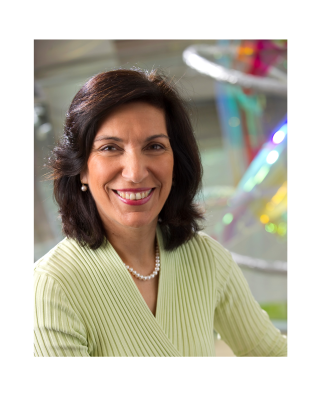
Prof Huda Yahya Zoghbi is a Professor of Pediatrics, Neurology, Neuroscience, and Molecular and Human Genetics at Baylor College of Medicine, an Investigator with the Howard Hughes Medical Institute, and Director of the Jan and Dan Duncan Neurological Research Institute at Texas Children’s Hospital.
Her work has led to the discovery of the genetic cause of Rett syndrome and provided insight into the function of the gene in various neurons. Along with training over 90 scientists and physician-scientists who have gone on to successful careers, she is the recipient of many prizes including the Breakthrough Prize in Life Sciences for 2017 and the Brain prize in 2020.
In this episode, she shares her wisdom about a life and career in science and how structures and institutions can come together to include members from underserved and underrepresented groups.
Audio-transcription of the episode
More information:
-
Episode 5: Dr Nancy Padilla-Coreano - Cultural immigrant in STEM
“I could only imagine what I knew was possible & being a scientist was out of the realm of my possibilities.”
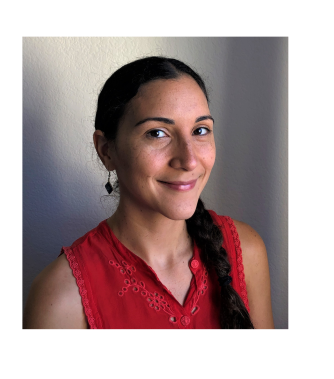
Dr Nancy Padilla-Coreano is a postdoctoral fellow at the Salk Institute for Biological Science with Prof. Kay Tye. She did her graduate thesis work at Columbia University in the laboratory of Prof. Joshua Gordon on functional connectivity in hippocampal-prefrontal pathway during anxiety behavior and collaborations on the role of interneurons in the prefrontal cortex during cognition. She talks to us about her experiences as an immigrant from Puerto Rico navigating American STEM academia.
Along with being a recipient of many awards and fellowships, she was recently nominated as a L’Oreal USA Women in Science Fellow. She is also the co-founder and director for Stories of Women in Neuroscience (WiN) – a project that highlights the stories of female neuroscientists at different career stages and from diverse backgrounds and subfields.Audio-transcription of the episode
More information:
-
Episode 6: Dr Noèlia Fernández Castillo - Pushing the limits
“I was aware that I had skills due to my disability that others did not.”
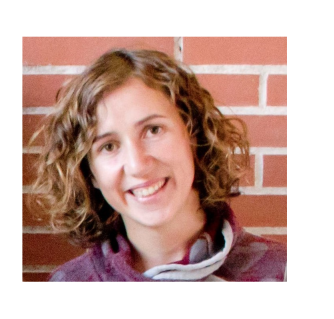
Dr. Noèlia Fernández Castillo was awarded her PhD in Genetics from the University of Barcelona in 2011. She is currently a researcher at the Centro de Investigaciones Biomédicas en Red de Enfermedades Raras(CIBERER) and an Associate Professor of Genetics, Microbiology and Statistics at the University of Barcelona.
The main focus of her research is on the genetic basis of neuropsychiatric disorders, such as Addiction, Autism, ADHD and aggressive behavior, using different methodological approaches that include genomics, transcriptomics, methylomics, association studies, animal and cellular models and functional studies.
As a person with rheumatoid arthritis, Dr. Fernandez gives us a glimpse of how constant pain and reduced mobility have changed her life and scientific career.Audio-transcription of the episode
More information:
- Dr. Fernández Castillo’s ORCiD page
- Federacion de Jovenes Investigadores (FJI-Precarios)
-
Episode 7: Dr André Mecawi - The importance of representation in STEM
“For me diversity means making people feel represented in all kind of spaces, jobs and classrooms.”
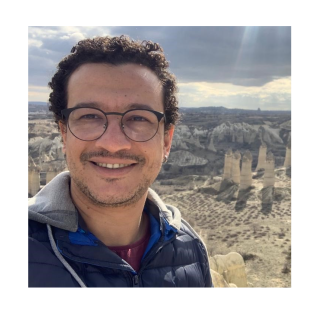
Dr André Mecawi is an Adjunct Professor of Biophysics at the Federal University of São Paulo. His laboratory is focused on understanding the role of the vasopressin and oxytocin producing hypothalamic neurons in physiological and pathological conditions.
He talks to us about the importance of good teaching and mentorship provided by exceptional teachers. He also tells us his experiences of growing up in Brazil as the son of an Egyptian father and a Brazilian mother and about the importance of representation and inclusivity in academia across career stages.
Born in Vitória Brazil, André got his undergraduate degree in Veterinary Medicine at the Federal Rural University of Rio de Janeiro (2008), followed by a Master and PhD in Physiology at the University of São Paulo (2012) under the mentorship of Dr. José Antunes-Rodrigues. His postdoctoral training in Molecular Neuroendocrinology was at the University of Bristol (UK, 2014) under the supervision of Dr. David Murphy.Audio-transcription of the episode
More information:
-
Dr. Mecawi's Google Scholar page
-
Dr. Mecawi's ResearchGate profile
-
Affirmative action Law for Universities enacted by Brazil - NYT article
-
-
Episode 8: Merima Šabanović - The nomadic life of scientists
“I take pride in coming from a small city from a small country but it does makes my impostor syndrome skyrocket”
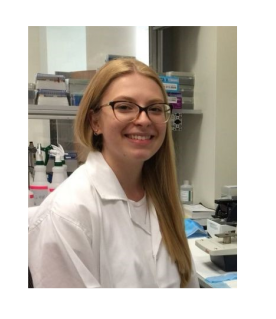
Merima Šabanović is a PhD student in the Wellcome Trust Doctoral Training Programme in Neuroscience at the University of Oxford. She grew up in Bosnia and Herzegovina and moved to sunny Abu Dhabi to study Biology, with specialization in Brain & Cognitive science and a minor in Psychology, at New York University Abu Dhabi. Her interest in behavioural neuroscience has led her to study psychedelics and focus on how these can impact cognition and brain structure in the long term after a single dose.
She gives us some candid insights about the peripatetic and temporary nature of academic life and what institutions can do to truly move the needle on being more diverse and inclusive.
Outside of the lab, she also volunteers as a peer supporter in the university and as a bereavement counsellor in Oxfordshire.
Audio-transcription of the episode
More information:
- Merima’s ResearchGate profile
- Merima’s work featured in the Nautilus magazin
- Merima’s student profile at NYU Abu Dhabi
-
Episode 9: Dr Mehmet Kurt - Intersectionality and LGBT in STEM
“One of the issues with being an LGBTQIA+ individual in STEM is the invisibility.”
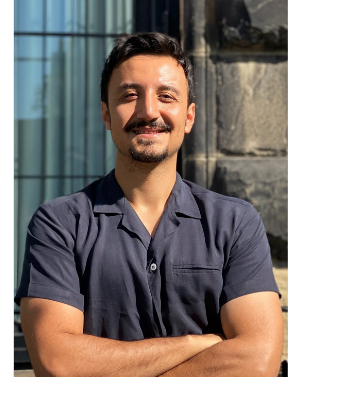
Dr Mehmet Kurt is the director of Kurtlab (www.kurtlab.com) and an Assistant Professor at the Department of Mechanical Engineering at Stevens Institute of Technology since January 2017. He also hold an adjunct faculty position at the Biomedical Engineering and Imaging Institute (BMEII) at Icahn School of Medicine at Mount Sinai. My primary research area of interest is brain biomechanics and neuromechanics imaging.
He speaks eloquently about the importance of intersectionality and the need to provide help and accessible mentorship for STEM researchers who are part of the LGBTQ+ community. He is also part of STEM village, an undertaking to improve the visibility of LGBTQ+ STEM community around the world.
He has won many awards including Provost’s Early Career Award for Research Excellence in 2020 and the Fortune Magazine 40under40 in Turkey. His lab’s research has been highlighted in various media outlets such as Reuters, Newsweek, CBS News and Washington Post.
Audio-transcription of the episode
More information:
- Dr Kurt’s lab webpage
- Dr Kurt’s Twitter handle
- The STEM village
-
Episode 10: Dr Dan Ohtan Wang - Being a Chinese woman neuroscientist in Japan
"Diversity means for anyone to express themselves freely without risking exclusion"
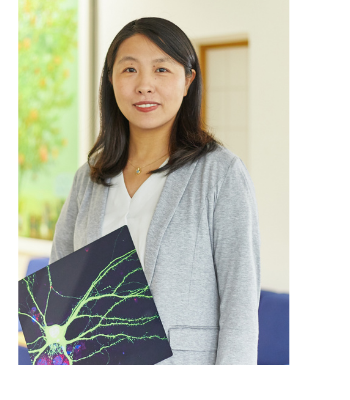 Dr Dan Ohtan Wang is a neuroscientist trained in Japan and US. Her work connects genetic information to cognitive brain functions through the regulation of RNA. Her work centers on live-cell imaging techniques in visualizing RNA molecules and characterizing the diversity of RNA molecules at neuronal synapses. Currently, she is leading a team to study "Neuroepitranscriptomics" at RIKEN BDR, to decipher RNA information in the context of cognitive development and decline, and harness RNA biology for mental health. She is also a member of the Diversity committee for the Japan Neuroscience Society.
Dr Dan Ohtan Wang is a neuroscientist trained in Japan and US. Her work connects genetic information to cognitive brain functions through the regulation of RNA. Her work centers on live-cell imaging techniques in visualizing RNA molecules and characterizing the diversity of RNA molecules at neuronal synapses. Currently, she is leading a team to study "Neuroepitranscriptomics" at RIKEN BDR, to decipher RNA information in the context of cognitive development and decline, and harness RNA biology for mental health. She is also a member of the Diversity committee for the Japan Neuroscience Society.She talks to us about her multiple identities as a woman neuroscientist - originally from China, trained in the US and working in Japan. She also gives us insights into the value of focus and resilience in science.
Audio-transcription of the episode
More information:
-
Episode 11: Dr Suraj Honnuraiah - Facing discrimination in Translational science
"When I experienced discrimination first hand, it was strange. And I didn’t know if that was the norm, or whether I could speak against it. But then, when I see that happening to my younger colleagues, I see the importance of speaking out"
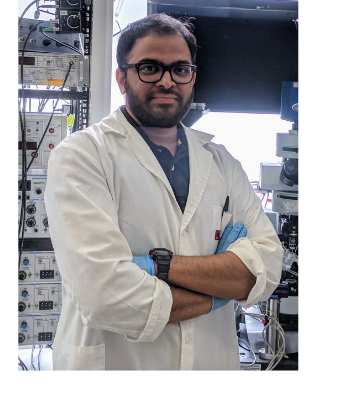
Dr Suraj Honnuraiah is a postdoctoral scientist in the laboratory of Prof. Greg Stuart at the Australian National University in Canberra, Australia. He grew up in India and did his Masters in Neuroinformatics with Prof. Rodney Douglas at the ETH in Zurich, Switzerland.
A tragic accident in childhood led to his friend losing his vision at an early age. Suraj talks about how he used this incident as his motivation to study and work in vision neuroscience and neuroinformatics for his PhD. He also talks to us about some subtle and covert forms of discrimination that he has faced and emphasizes the importance of having a diverse and inclusive working environment.
Currently, he is studying the cellular and circuit mechanisms of binocular visual information processing in rodent visual cortex using optogenetics and electrophysiological techniques.
Audio-transcription of the episode
More information:
- Dr Honnuraiah’s ANU page
- Dr Honnuraiah’s Loop profile
- Dr Honnuraiah’s work on ResearchGate
-
Episode 12: Dr Maryam Ziaei – Embracing science and religious faith
"I don’t feel that being a religious person is contradictory to being a scientist. Science is my mission, this is my way of thinking, this is my way of living actually."
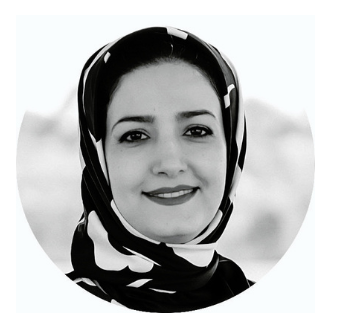
Dr Maryam Ziaei received her PhD in Neuroscience from School of Psychology, the University of Queensland (UQ), Australia. Following completion of her postdoctoral fellowship at the Centre for Advanced Imaging, UQ, she joined Kavli Institute for Systems Neuroscience in Norway to establish her own research group. She is currently an associate professor, and her primary focus is to understand neurocognitive mechanisms underlying social and emotional processing in aging.
She tells us about her journey in neuroscience as a practicing Muslim and about her unique experiences as an immigrant scientist in Australia.
Audio-transcription of the episode
More information:
- Dr Ziaei's personal website
- Dr Ziaei's lab website
- Dr Ziaei's LinkedIn
- Dr Ziaei's Twitter handle: @maryamziae
Interviewed and edited by Shruti Muralidhar, Audio content editing by Abhishek Chari, Music from Lee Rosevere. Other projects by Shruti Muralidhar: @polybiotique, BiasWatchIndia, IndSciComm.
*Disclaimer: the audio transcription were obtained via a semi-automated tool and may not be completely accurate.


